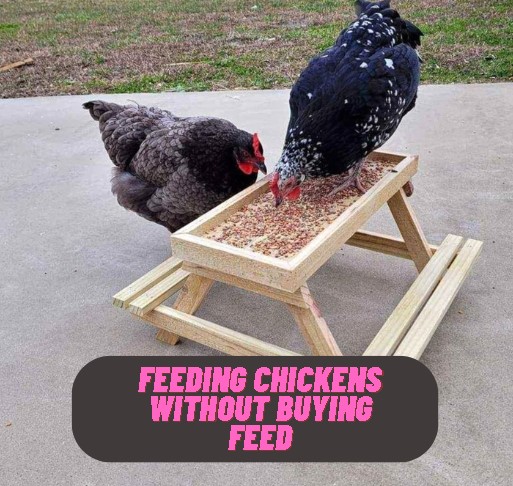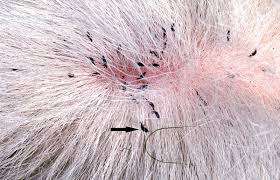Feeding Chickens Without Buying Feed: A Sustainable and Cost-Effective Approach

Feeding chickens without buying feed is a sustainable and cost-effective way to raise poultry. Not only does it save you money, but it also allows chickens to have a more natural diet and reduces reliance on commercial feed. By exploring alternative sources of food, you can provide your chickens with a diverse and nutritious diet.
Feeding Chickens on a Pasture
Raising chickens on a pasture is an excellent way to mimic their natural foraging behavior. It allows them to graze on a variety of plants and insects, providing them with a more balanced diet. Additionally, it provides chickens with fresh air, sunlight, and exercise, promoting their overall health and well-being.
To set up a pasture, proper fencing is essential to protect chickens from predators and prevent them from damaging neighboring crops. Suitable plants for chicken grazing include clover, alfalfa, ryegrass, and various types of forage. Rotating chickens to different sections of the pasture helps prevent overgrazing and allows the vegetation to regenerate.
Feeding Chickens Earthworms
Earthworms can be found in moist soil or compost piles and can be fed directly to your chickens. Feeding chickens earthworms helps supplement their diet and provides a natural source of nutrition. However, it is important to avoid feeding chickens earthworms that have come into contact with pesticides or other harmful substances. Chopping earthworms into smaller pieces can make them easier for chickens to consume.
| Nutritional Benefits of Earthworms |
|---|
| Rich Source of Protein |
| High in Essential Amino Acids |
| Abundant in Vitamins (B-complex and others) |
| Contains Minerals (Calcium, Magnesium, Phosphorus) |
| Provides Beneficial Fatty Acids |
| Excellent Source of Iron and Copper |
| Low in Fat and Cholesterol |
| High in Beneficial Gut Bacteria (Prebiotics) |
| Improves Soil Fertility and Aeration |
| Enhances Nutrient Recycling and Decomposition |
| Natural Vermicompost (Rich Organic Fertilizer) |
| Promotes Plant Growth and Health |
Raising Mealworms for Chickens
Mealworms are highly nutritious for chickens and can be easily raised at home. Creating a mealworm farm involves providing a suitable container with bedding material and a food source for the larvae. Common food sources for mealworms include oats, wheat bran, fruits, and vegetables. Once the mealworms have grown, you can harvest them and feed them to your chickens as a protein-rich treat.
Mealworms can be dried or frozen for long-term storage and convenience.
Sure, here's a table outlining the nutritional benefits of mealworms:
| Nutrient |
|---|
| Protein |
| Fat |
| Fiber |
| Carbohydrates |
| Calcium |
| Iron |
| Magnesium |
| Potassium |
| Phosphorus |
| Zinc |
| Vitamin B12 |
| Vitamin B6 |
| Niacin (Vitamin B3) |
| Riboflavin (Vitamin B2) |
| Thiamin (Vitamin B1) |
| Folate (Vitamin B9) |
| Vitamin E |
| Vitamin K |
Feeding Fruits and Veggies to Chickens
Chickens can safely consume a variety of fruits and vegetables, which provide them with essential vitamins and minerals. Some examples of safe fruits for chickens include apples, bananas, berries, and melons. Vegetables such as leafy greens, carrots, cucumbers, and squash are also suitable for chicken consumption. It is important to avoid feeding chickens toxic or harmful foods like avocado, onion, garlic, and chocolate. Introduce fruits and vegetables gradually to prevent digestive upset and monitor your chickens' response to different foods.
Foods to Avoid
Some foods are toxic or harmful to chickens and should be avoided. Chocolate, caffeine, alcohol, and raw potatoes are among the foods that should not be fed to chickens. Onions and garlic can cause anemia in chickens if consumed in large quantities. Avocado contains persin, a substance that is toxic to birds and should not be fed to chickens. It is important to research and be aware of any potential harmful foods before feeding them to your chickens.
Benefits of Feeding Chickens Without Buying Feed
Feeding chickens without buying feed has several benefits. First, it reduces dependency on commercial products and the associated costs. It promotes a more sustainable and environmentally friendly approach to poultry farming. Additionally, chickens fed with a varied diet of natural foods may have a richer flavor in their meat and eggs. Feeding chickens without buying feed allows you to have more control over the quality of their diet. Lastly, it can be a rewarding and educational experience to explore alternative feeding methods for your chickens.
Potential Drawbacks
Feeding chickens without buying feed does come with some potential drawbacks. It requires additional time and effort to source and prepare alternative foods. It may also be challenging to provide a balanced diet that meets all of the chickens' nutritional needs. Some alternative food sources may not be available year-round or in sufficient quantities.
It is important to consult with a poultry nutritionist or veterinarian to ensure that your chickens are getting all the necessary nutrients. Lastly, feeding chickens without buying feed may not be suitable for large-scale commercial operations.
Ensuring Nutritional Balance
To ensure that your chickens are getting all the necessary nutrients, supplement their diet with calcium-rich sources like crushed oyster shells. This will help maintain strong eggshells. Adding poultry feed supplements or premixes can also help ensure that chickens receive essential vitamins and minerals. Feeding chickens a variety of foods from different food groups helps provide a well-rounded diet. Regularly monitoring the chickens' health and consulting with a professional can help identify any nutritional deficiencies. Additionally, assessing the chickens' body condition and egg quality can provide insights into the effectiveness of their diet.
Conclusion
Feeding chickens without buying feed offers numerous benefits, including sustainability, cost savings, and healthier poultry products. By exploring alternative food sources and providing a well-balanced diet, you can ensure the health and well-being of your chickens. Remember to consult with experts and monitor your chickens' nutritional needs to ensure their optimal growth and productivity.






